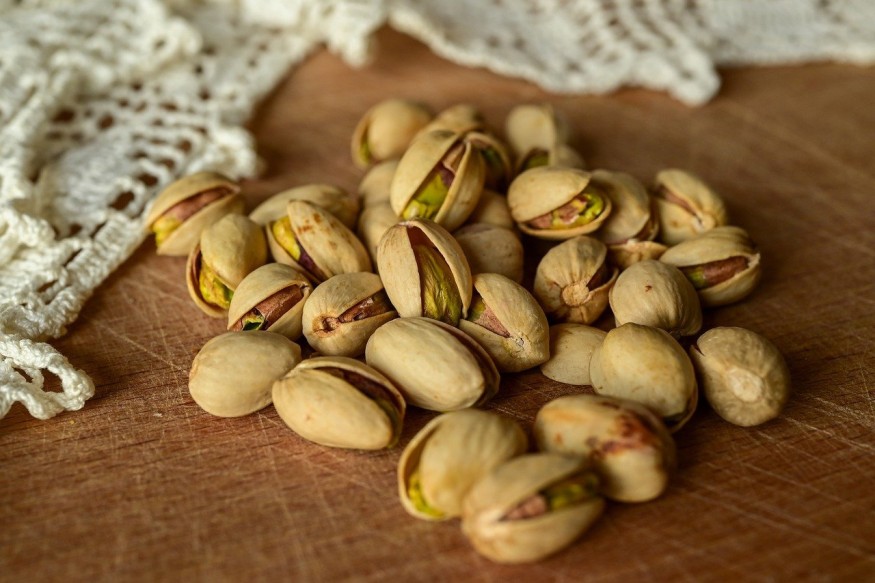
Pistachios, enjoyed for over 300,000 years as a versatile nut, are renowned for their slightly sweet taste and tender texture and widely embraced as a snack or ingredient in various recipes.
Notably, these protein-rich nuts are linked to numerous health advantages, including digestive support and safeguarding against cognitive decline. However, they also bring postive changes to the brain.
Cognitive Health Benefits
Incorporating nutrient-rich foods like pistachios into your diet can contribute to supporting brain health and cognitive function.
Pistachios are abundant in flavonoid antioxidants, including anthocyanins and flavones, which possess potential protective properties against cognitive decline by mitigating cellular damage and reducing inflammation within the brain.
According to Health.com, a 2021 study involving data from over 76,000 U.S. adults revealed a significant association between higher flavonoid intake and a reduced risk of cognitive decline.
Individuals with the highest total flavonoid intake exhibited a 19% lower risk of cognitive decline compared to those with the lowest intake. The flavonoids most linked to cognitive protection are concentrated in pistachios, encompassing flavonoids and anthocyanins.
Moreover, pistachios contain lutein and zeaxanthin, constituting up to 77% of the total carotenoid content of the brain, and contribute to brain function. Elevated dietary intake of carotenoids is correlated with enhanced memory and cognitive performance, along with a reduced risk of depression.
Other Health Benefits
Supports Digestive Health
Pistachios contain approximately 10% insoluble fiber and 0.3% soluble fiber by weight. The soluble fiber content in pistachios facilitates the growth of gut-friendly bacteria, including bifidobacteria and lactobacilli species, which produce essential short-chain fatty acids (SCFAs).
These bacteria ferment soluble fiber, generating SCFAs such as butyrate, propionate, and acetate. SCFAs play a crucial role in bolstering gut health by nourishing the cells lining the large intestine, stimulating intestinal mucus production and mitigating inflammation throughout the digestive tract.
Furthermore, fiber-rich foods play a pivotal role in preserving gut health by mitigating the risk of digestive ailments such as constipation, colon cancer and diverticulitis.
May Protect the Heart
Rich in potassium for blood pressure regulation and fiber and monounsaturated fats for promoting healthy blood lipid levels, pistachios offer substantial support to heart health.
In a 2020 study, 100 overweight individuals were divided into two groups. While both groups participated in a group-based behavioral weight loss program for four months, the first group incorporated 1.5 ounces of pistachios daily alongside the program, yielding significant reductions in both systolic and diastolic blood pressure levels compared to the weight loss intervention alone.
Moreover, a comprehensive review in the same year analyzing 34 studies revealed that diets enriched with pistachios were notably superior to those enriched with walnuts, hazelnuts, almonds and cashews in lowering total cholesterol, LDL cholesterol and triglyceride levels.
Provides a Variety of Antioxidants
Pistachios stand out as the nut with the highest concentration of lutein and zeaxanthin, surpassing other nuts by roughly 13 times in raw form. These antioxidant pigments, including lutein and zeaxanthin, offer robust cellular protection, with their consumption linked to various health benefits.
For instance, a 2021 study observed a 28.6% reduction in breast cancer risk among women with the highest blood levels of carotenoids.
Research indicates that incorporating pistachios into the diet may effectively elevate blood levels of carotenoids. In a 2020 study involving 100 participants, those assigned to the pistachio treatment alongside a behavioral weight loss program experienced significant increases in blood levels of alpha-carotene, beta-carotene, and lutein compared to the group without pistachio consumption.
Beyond carotenoids, pistachios boast an array of other antioxidant compounds, including phenolic acids, flavonoids and vitamin E, further enhancing their potential in promoting overall health.
Supports Healthy Blood Sugar Control
Pistachios, rich in protein, fiber, and low in carbs, contribute to stable blood sugar levels. Flavonoid antioxidants found in pistachios inhibit starch breakdown, aiding in blood sugar control. Evidence suggests significant reductions in fasting blood sugar and insulin resistance in individuals with type 2 diabetes.
